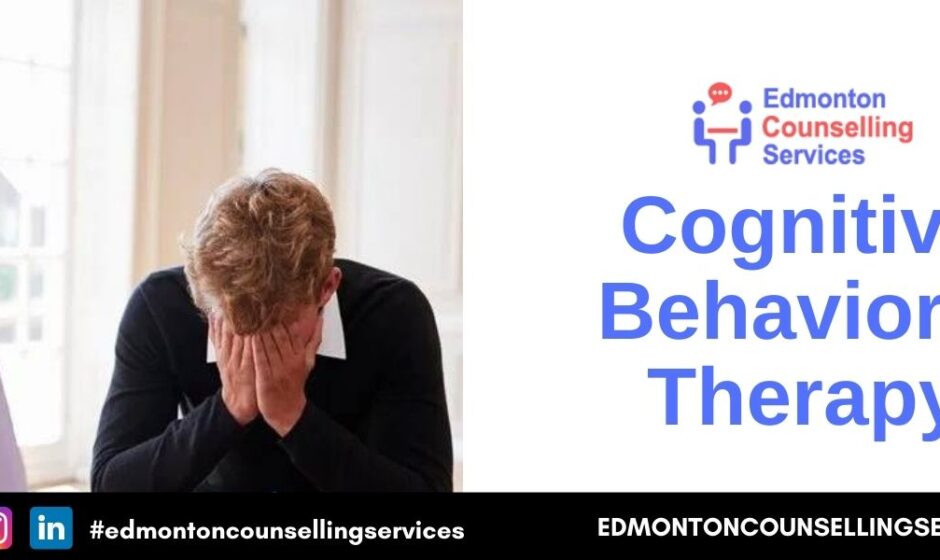Substance abuse is a pervasive issue that affects millions of individuals worldwide, with lasting consequences for both the individual and their loved ones. The treatment process for substance abuse typically involves a combination of therapies and support systems designed to help the individual understand the root causes of their addiction and develop healthier coping mechanisms. One of the most effective approaches is Cognitive Behavioral Therapy (CBT) counseling, which focuses on changing negative thought patterns and behaviors. This article explores the benefits of CBT counseling in the context of substance abuse treatment, with special emphasis on the role of Substance Abuse Professionals (SAPs).
What is CBT Counseling?
Cognitive Behavioral Therapy (CBT) is a widely practiced psychotherapy that aims to help individuals identify and modify dysfunctional thoughts, feelings, and behaviors. The goal of CBT counseling is to change negative thought patterns that contribute to emotional distress and maladaptive behaviors, particularly those associated with addiction.
In the context of substance abuse, CBT counseling addresses the underlying thought processes that may drive an individual’s addiction. Through guided therapeutic techniques, individuals learn to recognize triggers for substance use and develop strategies for managing cravings and avoiding relapse. CBT counseling helps individuals build self-control and gain a deeper understanding of the relationship between their thoughts, emotions, and behaviors.
How Does CBT Counseling Address Substance Abuse?
CBT counseling plays a pivotal role in substance abuse treatment by targeting the cognitive distortions and unhelpful beliefs that often lead to addictive behaviors. Here’s how CBT counseling works to address substance abuse:
- Identifying Triggers: CBT counseling helps individuals identify specific situations, emotions, or environments that trigger the desire to use substances. By recognizing these triggers, clients can take proactive steps to avoid them or develop coping strategies to manage the urge to use substances.
- Challenging Negative Thoughts: Many individuals struggling with substance abuse experience negative thought patterns, such as feelings of inadequacy or hopelessness, which can lead them to self-medicate with substances. CBT counseling helps individuals challenge these negative thoughts and replace them with more positive and realistic beliefs.
- Developing Coping Skills: CBT counseling equips individuals with effective coping strategies to manage stress, anxiety, and other emotions that may contribute to substance abuse. These skills include mindfulness techniques, relaxation exercises, and problem-solving strategies, which help individuals face challenges without resorting to substance use.
- Building Self-Efficacy: One of the main goals of CBT counseling is to enhance an individual’s sense of self-efficacy, or belief in their ability to overcome challenges. By developing confidence in their ability to manage their addiction, individuals are more likely to remain committed to their recovery journey.
What Role Does a Substance Abuse Professional (SAP) Play in CBT Counseling?
Substance Abuse Professionals (SAPs) are licensed professionals who specialize in the assessment and treatment of substance abuse disorders. They play an essential role in the treatment process, particularly when CBT counseling is used as part of an individualized treatment plan.
SAPs provide critical guidance in the implementation of CBT counseling by conducting thorough assessments of the individual’s substance use history and emotional health. Based on this assessment, the SAP can recommend a tailored treatment plan that incorporates CBT counseling techniques.
Furthermore, SAPs often work in conjunction with other healthcare providers, such as psychiatrists, psychologists, and social workers, to ensure a comprehensive and holistic treatment approach. Their expertise in substance abuse treatment allows them to monitor the progress of clients in CBT counseling and adjust the treatment plan as needed.
Why is CBT Counseling Effective for Substance Abuse?
CBT counseling is recognized as one of the most effective forms of psychotherapy for substance abuse treatment. Several factors contribute to the success of CBT counseling in helping individuals overcome addiction:
- Evidence-Based Approach: CBT counseling is backed by extensive research that demonstrates its effectiveness in treating a wide range of mental health issues, including substance abuse. Numerous studies have shown that CBT can significantly reduce substance use and help individuals maintain long-term sobriety.
- Focus on Skill Development: CBT counseling emphasizes skill-building, empowering individuals with the tools they need to manage their addiction. These skills are not just theoretical; they are practical strategies that individuals can apply in their everyday lives to prevent relapse and improve their overall well-being.
- Collaborative and Structured Process: CBT counseling is a collaborative process between the therapist and the client. This structured approach allows individuals to take an active role in their treatment, setting goals and working toward achieving them. The collaborative nature of CBT fosters a sense of accountability, which is essential in the recovery process.
- Short-Term and Goal-Oriented: Unlike other forms of therapy that may require years of treatment, CBT counseling is typically short-term and focused on specific goals. This makes it a cost-effective and efficient option for individuals seeking help with substance abuse.
- Adaptability to Different Substance Use Issues: Whether an individual is struggling with alcohol, drugs, or other forms of substance abuse, CBT counseling can be adapted to address the unique challenges of each type of addiction. SAPs tailor the CBT techniques to suit the individual’s specific needs, ensuring that the treatment is both relevant and effective.
What are the Benefits of CBT Counseling for Substance Abuse?
CBT counseling offers a wide range of benefits for individuals seeking treatment for substance abuse. Some of the key advantages include:
- Reduction in Substance Use: Numerous studies have shown that individuals who undergo CBT counseling are less likely to relapse compared to those who do not receive therapy. By changing negative thought patterns and developing healthier coping mechanisms, clients can reduce their reliance on substances.
- Improved Emotional Regulation: Substance abuse often occurs as a result of difficulty managing emotions. CBT counseling helps individuals develop emotional regulation skills, enabling them to cope with negative feelings in a more constructive way.
- Long-Term Sobriety: One of the primary goals of CBT counseling is to help individuals achieve lasting sobriety. By addressing the root causes of addiction and equipping individuals with the skills they need to manage their behavior, CBT counseling increases the chances of long-term recovery.
- Enhanced Quality of Life: As individuals progress through CBT counseling, they often experience improvements in various aspects of their lives, including relationships, employment, and overall mental health. The tools and strategies learned in CBT counseling can be applied to a wide range of challenges, improving overall life satisfaction.
- Empowerment: CBT counseling empowers individuals by giving them control over their recovery process. By actively participating in therapy and learning how to manage their thoughts and behaviors, individuals gain confidence in their ability to overcome addiction.
How Can You Get Started with CBT Counseling for Substance Abuse?
If you or someone you know is struggling with substance abuse, seeking professional help is the first step toward recovery. Working with a licensed Substance Abuse Professional SAP who specializes in CBT counseling is an effective way to begin the healing process.
To get started, consider scheduling an appointment with an SAP who can conduct a comprehensive assessment and create a personalized treatment plan. CBT counseling can be integrated into a larger treatment plan that may also include group therapy, medication management, and family support, ensuring a holistic approach to recovery.
In conclusion, CBT counseling is a powerful and effective tool in the treatment of substance abuse. With the help of a trained Substance Abuse Professional, individuals can break free from the cycle of addiction, develop healthier thought patterns, and ultimately achieve lasting sobriety.



